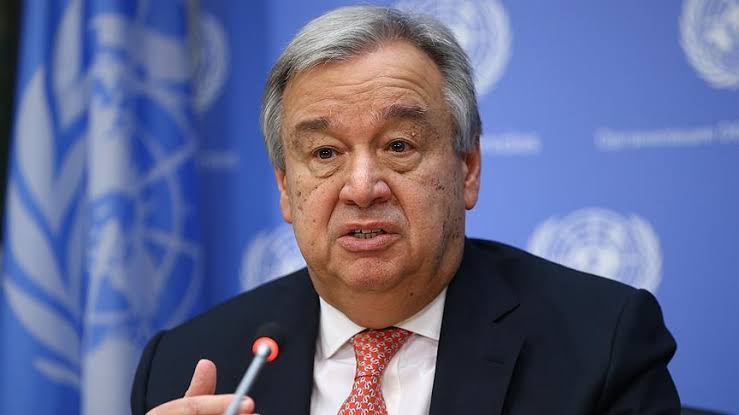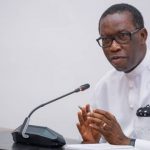UN Secretary-General António Guterres has solicited for deeper cooperation with Africa Union (AU) to address humanitarian crises and conflicts in Africa.
Guterres made the call at a news conference after the fifth UN-AU Annual Conference on Wednesday at UN headquarters in New York.
He said unity of purpose and action are needed to continue to address the security challenges in the continent and strengthen cooperation between the organisation which has existed for two decades.
According to him, recent months have seen a resurgence of military coups in some part of Africa.
“We see terrorism and violent extremism stalk millions across the Sahel and renewed fighting in the Democratic Republic of the Congo (DRC) and the conflict in Ethiopia continues unabated.
“I renew my appeal for an immediate cessation of hostilities and unhindered humanitarian access in Ethiopia.
“There is no justification for the targeting of ethnic groups and arbitrary arrests, nor for detaining UN personnel.’’
He said these work required close collaboration between the UN and the AU, noting that was what the meeting was all about.
He highlighted the wide range of progress made through collaboration, from frameworks around peace, security and sustainable development, to joint missions and programmes for humanitarian operations, elections and peaceful transfers of power.
Guterres also focused on areas critical for an inclusive, resilient and sustainable recovery on the continent, that are grounded in the 2030 Agenda for Sustainable Development and the AU’s Agenda 2063, to help Africans “reap the rewards of opportunities”.
The UN chief said that ending the COVID-19 pandemic would be one key to recovery, but despite the AU’s continued work and joint efforts for increased vaccine access and medical supplies, only 6 per cent of Africa’s population has been fully vaccinated.
Guterres called for a global plan involving all countries that could produce inoculations, including several in Africa, and threw his weight behind the World Health Organisation’s (WHO) strategy.
The strategy aims at getting vaccines into the arms of 70 per cent of people, in all countries, in the first half of 2022.
He underscored the need to continue summoning support and financing for sustainable domestic vaccine manufacturing in Africa.
Against the backdrop of a “deeply immoral and unequal” recovery, the top UN official declared that “vulnerable countries are drowning in debt”.
While developed economies are investing 28 per cent of their GDP in recovery and middle-income countries 6.5 per cent, least developed countries are investing just 1.8 per cent.
In sub-Saharan Africa, the International Monetary Fund (IMF) projects that cumulative economic growth per capita over the next five years will be 75 per cent less than the rest of the world.
And while vulnerable countries are counting on the re-allocation of unused Special Drawing Rights (SDRs) – a type of foreign reserve asset that are IMF defined and maintained – a massive commitment is needed for that to happen.
“The G20’s Debt Service Suspension Initiative must be extended into next year…the international debt architecture needs to be reformed once and for all and the public and private sectors…need to accelerate private investment back to pre-pandemic levels,” he said.
In addition, he said peace was “in dangerously short supply” from Ethiopia to Sudan and the Sahel to the Central African Republic,
The UN chief drew attention to the UN’s landmark Common Agenda, unveiled earlier in 2021, which takes a “comprehensive, holistic view of global security” and seeks to strengthen regional and sub-regional organisation partnerships – with AU-UN cooperation being the most vital.
To combat economic inequalities, discrimination, marginalization and other roots of conflict, he maintained that human development must be supported – from health and education to social protection.
AU-led peace support operations also need new investment, he said, adding that he would continue to push the Security Council for a Chapter VII mandate that allows action to “restore international peace and security”, with guaranteed financing.
“This is most urgent in the Sahel and Somalia, where ongoing operations are severely constrained and face deep uncertainty with respect to funding.
“All of these challenges demand unity of purpose and unity of action,” he said.
(NAN)






